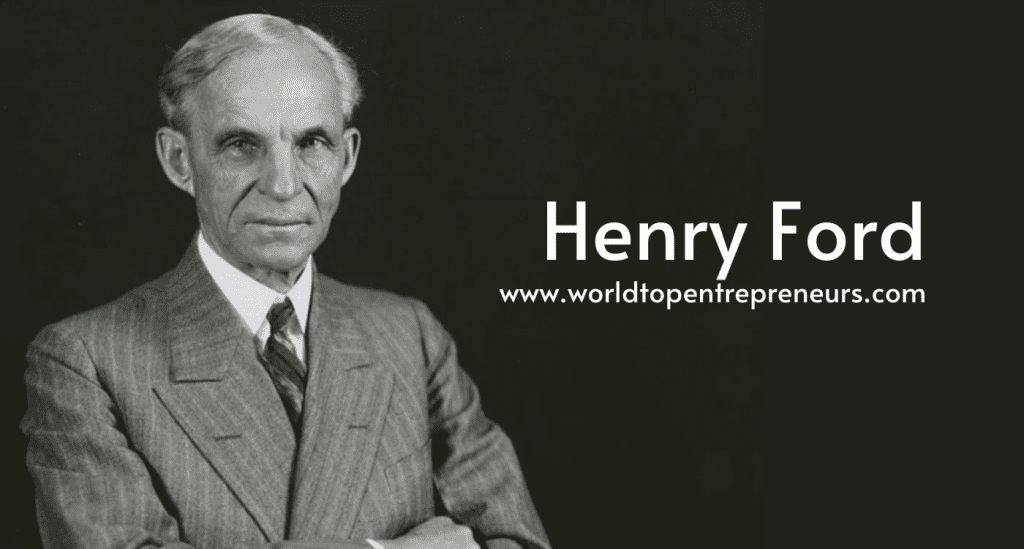Vladimir Scherbakov is a name that resonates within Russia’s automotive industry, particularly as the co-founder and driving force behind Avtotar, a company known for its significant contributions to the development of the Russian automotive sector. Scherbakov’s entrepreneurial journey, marked by perseverance, innovation, and a deep understanding of market dynamics, reflects his passion for the industry and commitment to establishing a successful business. This blog will explore Scherbakov’s educational background, the founding of Avtotar, the challenges he faced, his business philosophy, and the company’s successes in shaping the Russian car manufacturing landscape.
Early Life and Educational Background
Vladimir Scherbakov was born in Russia in the early 1970s, a time when the country was undergoing significant political and economic changes. Growing up, Scherbakov developed a keen interest in technology and engineering, subjects that would influence his future career. Like many entrepreneurs in Russia, Scherbakov understood the importance of education in shaping his professional aspirations and sought out a solid foundation in the relevant fields.
Scherbakov attended the Moscow State Technical University of Civil Aviation (MSTUCA), where he studied engineering. His education provided him with essential technical skills in mechanics, systems design, and problem-solving—skills that would prove indispensable as he ventured into the automotive industry. After completing his studies, Scherbakov honed his technical expertise by working in various engineering roles, where he learned about the intricacies of manufacturing and operational management.
This technical background laid the groundwork for his entrepreneurial ambitions. Understanding the mechanics of products and the intricacies of manufacturing operations gave Scherbakov the insights needed to succeed in a competitive and capital-intensive industry like automotive production.
The Birth of Avtotar: A Vision for the Russian Automotive Industry
In the early 2000s, Scherbakov, along with his business partner, founded Avtotar, a company focused on manufacturing automotive parts and assembling vehicles in Russia. At the time, the Russian automotive market was dominated by foreign brands, but local production was starting to gain momentum. Scherbakov and his team recognized an opportunity to bring world-class automotive manufacturing to Russia while addressing the growing demand for high-quality, domestically-produced vehicles.
Avtotar initially focused on the assembly of light commercial vehicles (LCVs) and small passenger cars, positioning itself as a key player in the market. The company’s vision was not only to assemble vehicles locally but also to help revitalize the Russian automotive manufacturing sector by using advanced technologies, attracting skilled labor, and focusing on quality control.
The choice of automotive parts manufacturing and vehicle assembly was strategic, as it allowed Avtotar to tap into an existing market while simultaneously improving the domestic production capacity for the automotive industry in Russia. Scherbakov’s vision was to create a competitive company that could eventually expand its footprint both locally and internationally.
Business Strategy and Growth
Scherbakov’s entrepreneurial success with Avtotar can be attributed to several key factors:
- Focus on Localization and Technological Innovation: One of the core strategies for Avtotar was localization—reducing reliance on foreign manufacturers for key components and ensuring that the company could produce as much as possible within Russia. This approach helped reduce costs, mitigate risks associated with supply chain disruptions, and increase the company’s competitiveness.
Avtotar invested heavily in state-of-the-art machinery, research and development, and employee training to ensure the company could meet international standards of automotive manufacturing. Scherbakov placed a strong emphasis on quality control, implementing rigorous testing processes to ensure the reliability and durability of the vehicles. This investment in technology helped differentiate Avtotar from competitors who often struggled with issues of quality and innovation.
- Strategic Partnerships and Government Support: Another significant factor in Avtotar’s growth was its ability to forge strategic partnerships with both local and international players. Recognizing the importance of collaboration, Scherbakov sought partnerships with global automotive companies that could help elevate Avtotar’s reputation and operational efficiency.
Additionally, Scherbakov leveraged the Russian government’s support for local manufacturers. Russia has long provided incentives for companies that contribute to the development of the country’s domestic industries. By aligning Avtotar with government initiatives to boost local production, Scherbakov ensured that the company could access favorable terms and funding.
- Diverse Product Line: Over the years, Avtotar expanded its product offerings beyond just small cars and light commercial vehicles. The company introduced larger commercial vehicles, electric vehicles, and specialized vehicles designed for specific industries, such as agriculture and construction. This diversification helped Avtotar to capture a broader market and reduced its dependence on a single segment of the automotive industry.
Struggles and Challenges
Despite Avtotar’s success, Scherbakov faced a series of challenges throughout his entrepreneurial journey, many of which stemmed from the volatile nature of the Russian economy and the global automotive industry.
- Economic Volatility and Currency Fluctuations: Like many Russian businesses, Avtotar struggled with the volatility of the ruble and the unpredictability of global markets. Currency fluctuations often impacted the company’s ability to import critical parts and materials, leading to production delays and higher costs. Scherbakov had to manage these risks carefully, seeking ways to optimize local production and reduce the company’s reliance on imported goods.
- Competition with Foreign Brands: The Russian automotive market was highly competitive, particularly with the influx of foreign automakers that entered the market in the 2000s. Companies like Renault, Volkswagen, and Toyota rapidly established their presence in Russia, providing consumers with more choices and often more advanced technology. For a company like Avtotar, which was still in its early stages, competing with these global giants required significant investment in innovation and marketing.
- Political and Regulatory Challenges: The political landscape in Russia has historically posed challenges for businesses, particularly those operating in manufacturing. Shifts in government policy, regulatory changes, and inconsistent enforcement of laws created uncertainty for many businesses, including Avtotar. Scherbakov had to navigate these shifting dynamics while ensuring that his company complied with local regulations and remained in good standing with government entities.
- Access to Capital: The capital-intensive nature of the automotive industry made it difficult for Avtotar to scale rapidly without securing significant funding. Like many small and medium-sized enterprises (SMEs) in Russia, Avtotar faced challenges in accessing financing, particularly in the early stages of growth. Scherbakov had to be resourceful, relying on reinvested profits, government-backed loans, and strategic partnerships to secure the necessary capital.
Successes and Achievements
Despite these challenges, Scherbakov’s leadership has been instrumental in Avtotar’s continued success:
- Local Industry Leadership: Avtotar is now one of the leading domestic producers of commercial vehicles and light cars in Russia. Its vehicles have become well-known for their durability, reliability, and cost-effectiveness—qualities that appeal to a wide range of Russian consumers, from small business owners to large corporations.
- Expansion into International Markets: Under Scherbakov’s guidance, Avtotar began to explore international markets, particularly in the Eurasian Economic Union (EAEU) and Central Asia. By positioning itself as a competitive producer of high-quality vehicles, Avtotar sought to tap into regional markets where demand for affordable, reliable vehicles was growing. The company has also engaged in export agreements with countries like Kazakhstan and Belarus, helping to build Avtotar’s reputation beyond Russia’s borders.
- Technological Innovation: Avtotar has remained committed to research and development, leading to the creation of new models and innovations in vehicle design. Scherbakov pushed for the company’s adoption of electric vehicle (EV) technology, a forward-thinking move that has positioned Avtotar to play a role in Russia’s transition to more sustainable transportation. The company has also worked on incorporating AI and smart technologies into its vehicles, enhancing safety and driving experiences.
- Job Creation and Economic Contribution: Avtotar’s success has not only contributed to the Russian economy through taxes and exports but has also played an essential role in job creation. Scherbakov has always emphasized the importance of building a sustainable workforce, and Avtotar’s growth has provided thousands of jobs in manufacturing, engineering, and marketing sectors.
Conclusion
Vladimir Scherbakov’s journey from a skilled engineer to an influential entrepreneur in Russia’s automotive industry is a testament to his vision, resilience, and strategic thinking. Through Avtotar, Scherbakov has contributed to the development of Russia’s local automotive manufacturing capabilities, helping to reduce the country’s reliance on foreign imports and creating a competitive, innovative business. While the path has been filled with challenges—from economic volatility to intense competition—Scherbakov’s leadership has ensured that Avtotar remains a key player in the industry, with a promising future ahead.





















